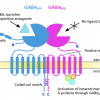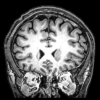I have some experience with benzos and z-drugs, though not as much as some around here.
I'll second the following:
- active B vitamins
- magnesium
- taurine
- theanine
- coQ10
Negative on the noopept, it will make you worse since it will light up your glutamatergic system, which you already have trouble with it since your GABA will be compromised.
Unsure about the tyrosine since it will indirectly up your norepinephrine.
You can actually throw a straight low-mid dose of GABA supplement in there (yes it does work) to further ease the transition. This is not the same thing as taking a benzo or large doses of GABA.
I'm not too enthused the cholinergics for you right now. Too many of the psychiatric drugs are outright anticholinergic or mildly anticholinergic. There's a good chance that choline supplements, or moderately strong nonpresccription AChE inhibitors (like bacopa) will make you worse until you have fully recovered. You can still try it though, some people swear by it and I believe them, but others either got nothing from it or ended up worse off.
Relora? Dunno. Hopefully someone else has more info they could volunteer about that one.
Add something strongly probiotic to the mix, you want a wide spectrum here so usually that means foods or moderately expensive probiotic blends (meaning the ones that aren't gimmicky bullshit). Kefir or kombucha are cheap and effective. Your gut flora secrete GABA, serotonin and other neurotransmitters, so help them help you.
Eat potassium rich foods. Various types of drug withdrawal involve screwing up electrolytes and potassium is often the most overlooked. Mild hypokalemia symptoms can mimic anxiety to a T. Additionally, since magnesium helps keep potassium inside the cell, if your magnesium is screwed then your potassium stands a good chance of being double-screwed.
Eat fiber-rich foods. Get the healthy carb sources in your diet. Makes your intestines nice places for your gut flora to live.
Fresh uncooked spinach, baby carrots, peas, broccoli (fruits: red bell pepper, cranberry, kiwi, blueberry) these are awesome-sauce and the spinach particularly is a good source of folate (not folic acid), mag and potassium, blah blah blah. Keep in mind that the longer the spinach (or other green) hangs out in the fridge, the less active folate it will have when you eat it.
I like brown or white jasmine rice. Or calrose. I switch it up.
Have some white meats sprinkled around in there somewhere.
I know it looks silly, and your diet is not going to cure anything, but diet and sleep will build an excellent platform for your whole regimen to do its magic. If you don't have these two things then you're wasting your money on the supplements.
Low dose lithium probably wouldn't hurt.
You can also look at calming herbal teas to help ease your transition. The teas will also tend to have less risky interactions with your drugs than concentrated supplements of the same species. Lemongrass, lemon balm, ginger, turmeric, licorice, chamomile, in no particular order. Don't stick to one tea all the time, switch them up so your brain doesn't get used to them.
These are my absolute favorite teas, I never let myself run out of them:
Pukka Relax
Pukka Three Ginger
Yogi Calming
These are my favorites because they help settle me without sedating or slowing me down, which is important to my daily routine. Steep 10 mins. Some people want something stronger, though.
Other notables:
Yogi Honey Lavender Stress Relief (I have trouble with the passionflower sometimes)
Yogi Kava Stress Relief (way too strong for me lol)
Pukka Night Time
Yogi Bedtime
Yogi St John's Wort
The bedtime teas do not necessarily have to be used at night; people with high tolerance for sedatives can drink these in the day and get only a mild calming from it, or you could brew a weak cup for daytime use.
You'll notice I only cited two tea brands here. That's because these are literally the only ones I use right now, not just because they have my favorite blends, but because I trust these to be organic and fairly free of the contaminants, bad packaging, or artificial or "natural" flavoring (which are not really natural in the sense most people think of it) commonly found in the really popular store brands (and Starbucks). Bad or questionable tea brands would include Lipton, Teavanna, Trader Joe's, Celestial Seasonings, Bigelow, Tazo, Twinings. This is important for me simply because I drink tea every day so that kind of thing would cause me problems after a while. For occasional tea drinkers this is not really a major issue.
Now here's where I might say something cringe-worthy and iffy: thanks to another LongeCity member, my mind has been changed about the usefulness of aromatherapy. I'm now on this aromatherapy kick, but I don't buy into all of it, only a handful that have some evidence from journals that seem legit (which is something I harp on, to everyone's annoyance, I'm sure). So, insuring you get a brand that really makes 100% essential oil (without mixing it up with propylene glycol or actual oils ... which I discovered is a real pain in the ass because of so many unethical companies out there selling snake oils)... lemon, lemongrass, orange, lavender, rosemary. Without using any heat-based diffusion which would compromise their effectiveness. These ones have some real evidence behind them as having some consistent effects on certain receptors. The majority of the essential oils on the market do not have much of any evidence from a credible source at this point. So I remain skeptical. That doesn't necessarily mean their effects are placebo, but they haven't been in too many serious placebo-controlled studies, which is mostly a money and an interest issue. I'm sure a lot of their purported uses are bullshit. But until then I still won't waste money on them except to get something that makes me smile just because smells good.
Not going to lie to you though, you're still going to be in hell for a good while even if you combine most of these together in a daily regimen (which I recommend). It will just reduce suffering a bit. One of the reasons benzos are so scary is because aside from a properly long taper off, there's not much that is singularly potent for easing off long-term benzo use.
I would just leave the antagonists alone. They'll just make you feel worse before you get better and make it more difficult to stay on the right path, and that's if you don't suffer any of the side effects of those. If the goal is just to go back to normal and off of everything, then the best course of action is the really slow and steady taper, then off. Let your body fix itself.















































